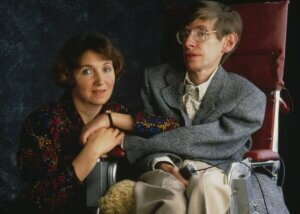
A PhD is only one of the many options that you have post your post-graduation. Even a decade ago, those considering research and academics exclusively for a career were expected to do a PhD. This is no longer the case. With burgeoning micro domains in every subject that is evolving, thanks to new skill sets and diverse thought processes, a PhD has become essential for many think tanks. You might do a double post-graduation, or an honors, diploma, or certificate course, all in order to gain those skills, to land that dream job or just purely to make money and more money. But the truth is, none of the above pursuits will give you that extra edge, that extra advantage that a PhD can. I reiterate, NONE of the above qualifications can give you those “so many things” that a PhD can. Yes. that’s right – Just a PhD somersaults over all qualifications to get you to the front of the line.
Does this mean that everyone, be it from any field of interest in the sciences, should jump blindly into a PhD after graduation? To answer that, we need to know how and why a PhD is essential and if so, whether it is truly indispensable. Now, let us quickly explore how, why and when a doctorate experience could be essential?
- It helps you master a domain or subject area of choosing. A PhD helps you gain expertise or enhance your competence in your chosen domain, though it could also narrow you down to being specialized in a micro domain with having in-depth knowledge of that subject area.
- Intrapersonal relationships are tested tremendously. I stress on “intrapersonal” because as a PhD scholar you need to interact with a host of people as a result of which there are varied stressors from peers, the work culture, the mentor and your work in itself. These are factors which constantly keep you under the spotlight from your supervisor and you are being continuously evaluated. The persistent pressure that makes you feel like being in a pressure cooker 24*7 shapes and molds your strengths and weaknesses. Change, though, is inevitable; why not resolve to change for the best and turn a new leaf!
- Interpersonal relationships in research are as important as those in any other profession. You are ever dependent on your colleagues, seniors, or faculty at work. Research is multi/interdisciplinary and always demanding of mutual trust among peers, ethical behavior, and interventions at work. This is something you will find yourself naturally veering towards during a PhD.
- The doctoral journey is quite a surprise of sorts. The entire package of a rollercoaster ride that a 4-6year PhD program takes you for is never guaranteed with any other graduation course, as many ever, or no matter how long they might be.
- You have a huge advantage after your PhD. Your explorations after a PhD become multifaceted since you have unearthed your true potential with tremendous motivation and learnt all those life skills that kept you afloat in the vast, tyranny-ridden path of doctoral studies.
- You get a massive confidence boost. The after-life (do not think otherwise – I am referring to life after a PhD ;)) gets a new meaning. For one you feel unstoppable, with abundant reserves of confidence, creativity, and established thought processes that rev you up to make the endurance you built and demonstrated during your doctoral journey worthwhile and fruitful.
- You develop unbeatable life skills. By this, I refer to skills that add to your emotional intelligence, such as patience, endurance, and optimism. Logical and analytical approaches to life challenges are definite byproducts of doctoral studies.
- You learn to appreciate the truth about the human mind, body, and resilience. Evolved souls like Stephen Hawking and Marie Curie have demonstrated the art of executing “mind over the body”. These accomplished scientists have exemplified through their lives that the mind and intellect are limited by the body. One begins to understand the absolute truth behind this, especially during times when a PhD consumes you and your physical being, when your body sets limitations by getting tired/falling ill/experiencing mental health issues like anxiety, self-doubt, or depression. This knowledge of how the mind and body are intertwined especially during a long-term academic pursuit is a useful tool – it’s definitely something that makes you wiser.
Source: empireonline.com Source: allthatsinteresting.com - You begin to truly appreciate the meaning or value of self-care and well-being. A PhD is hard, even ruthless at times, leading you to push yourself beyond familiar physical, mental, and emotional boundaries. The profound meaning of self-care/self-love begins to hit you on the face by your third year. That, is some essential learning because what is the purpose of education and career if you do not learn to value yourself first!
- A PhD also puts you on the path of spiritual introspection. For those inclined towards understanding the purpose of life, philosophy, and spirituality, a PhD in the sciences is the first step towards that path of self-realization. As ARK Sharma rightly points out in his book on spiritual intelligence, it is “difficult to comprehend the subtle concept of spiritual intelligence”. However, in my opinion, a doctoral journey can lead an emotionally intelligent person to initiate thoughts on spiritual intelligence and that is in itself an ideal platform for a positive upheaval of the individual.
This now brings us to the second question – Is a PhD essential for all?
I would say – DEFNINITELY YES! Only if you are open to the numerous career options that research opens up for you.
Many out there have set ambitions and goals since childhood, pinning hopes on achieving a particular career. If you fall under this category, my advice would be – chalk out a definite path of education and training. For example, if you are a civil services aspirant (or aspiring for a government position) in India that does not demand eligible PhD candidates, you can save time and energy by instead focusing on training, practicing, coaching, and getting there, while extensive higher education in the sciences perhaps may not help serve that purpose. A doctoral journey wouldn’t help as much to enhance your flavor for this dream job/career since the work and the journey in PhD is experimental to the core!
For those with an I-like-to-be-my-own-boss attitude, a doctorate fetches that worthwhile, value-added period to your life, empowering you with the practical know-how of planning projects and coming up with effective strategies to execute them thoughtfully and purposefully.
A note of caution (also a disclaimer): Just so you are not starry eyed, let me add that a PhD in the sciences demands a rather special commitment. It’s a like wedlock you are entering into, not an agreement.
About the author

PhD student, Department of Biochemistry, School of Life Sciences, University of Hyderabad
Gayatri Ramachandran is currently pursuing her PhD, studying drug-induced aspects of mitochondrial stress at the Department of Biochemistry, University of Hyderabad, India. Before beginning her PhD journey, Gayatri worked as a Junior Research Fellow at the Council of Scientific and Industrial Research, India, on the molecular genetics of cardiomyopathies.
She briefly experienced corporate professional life while working on a ‘pharmacogenomics in cancer’ product as well as explored teaching side in the fields of Genetics, Molecular Biology, and Animal Biotechnology.
These career-related experiments and experiences helped her discover her intense passion and skill for teaching, educational research, and content writing. Her interests also keep her motivated to investigate and get involved in activities that help strengthen the holistic development of higher education in India.






